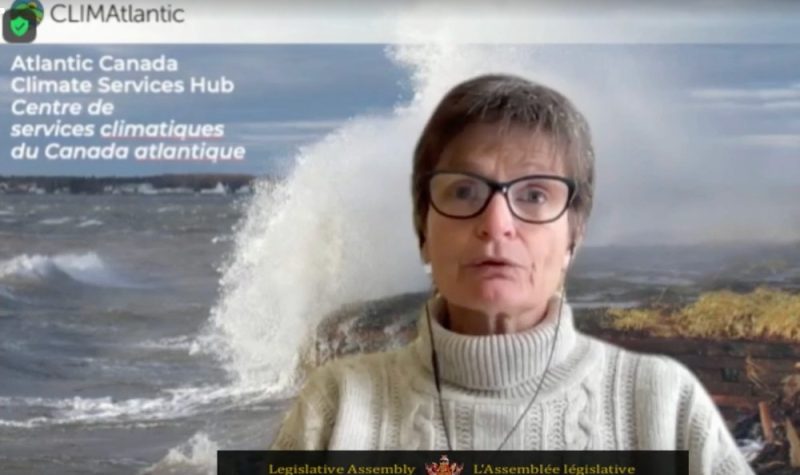Increased risk of flooding in the Sackville area was top-of-mind as a legislative committee on climate change began hearings last week.
Jamie Burke, chief administrative officer for the Town of Sackville, stressed concerns about floods affecting the Chignecto Isthmus, the narrow strip of land linking Nova Scotia to New Brunswick.
"Having this flooded is obviously is going to have a major financial impacts for the rest of the country and beyond," he said as on Thursday, as the virtual hearings began.
Some $20 billion in goods move through the area along this transportation link annually, he told the standing committee on climate change and environmental stewardship.
"And we just have to look to our friends and on the west coast of British Columbia [to see] what happens when Mother Nature shows how relentless and cruel she can be," he said, in an apparent reference to heavy rainfall in B.C. which led to disastrous flooding in November.
Burke said municipalities like Sackville don’t have the fiscal capacity to fund massive infrastructure projects necessary for climate change adaptation.
Sabine Dietz, executive director of CLIMAtlantic, a Sackville-based climate information clearinghouse, said government investments in climate change adaptation are inadequate.
"I understand that adaptation is not as sexy as electric cars not as sexy as solar panels," said Dietz, who is also a member of Sackville town council.
"Adaptation work needs to be scaled up significantly, we need to better understand the risks, better understand adaptation actions that make sense in the future and today," she said. "We need to mainstream it across all sectors, all institutions and everywhere."
Dietz also said New Brunswick needs a comprehensive climate risk assessment.
"As a province we have no comprehensive description or overview of where our risks lie," she said. "We know our Northumberland Strait coastline is at very high risk of coastal flooding and storm surges. What about drought? What about post-tropical storms? What about the agricultural sector of forestry?"
The provincial climate change plan is currently undergoing a statutory five-year review.
Residents can provide input about the new plan during an online consultation period between Jan. 24 and Feb. 24.
The committee is slated to continue meeting this week between Tuesday and Thursday.
Full webcasts of the presentations can be found on the website of the Legislative Assembly, at Legnb.ca.
Listen to the CHMA story below:


